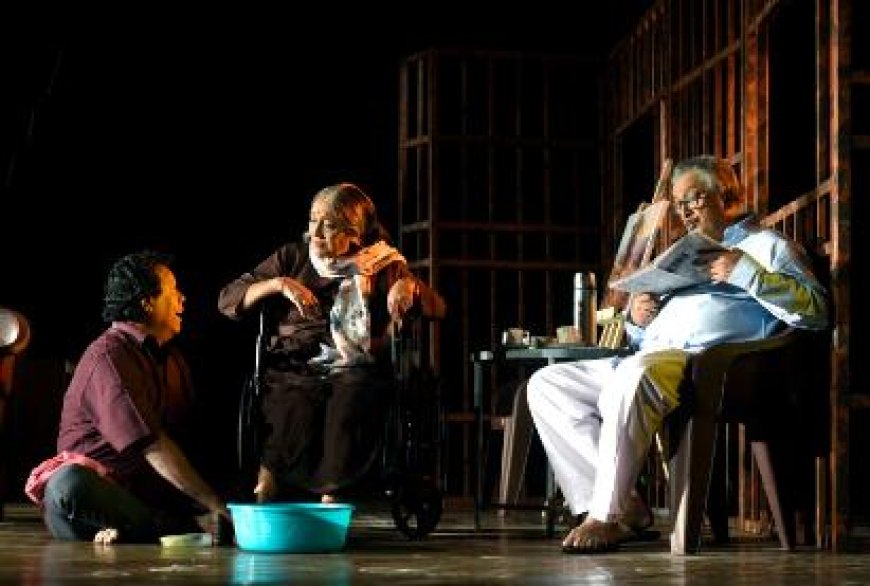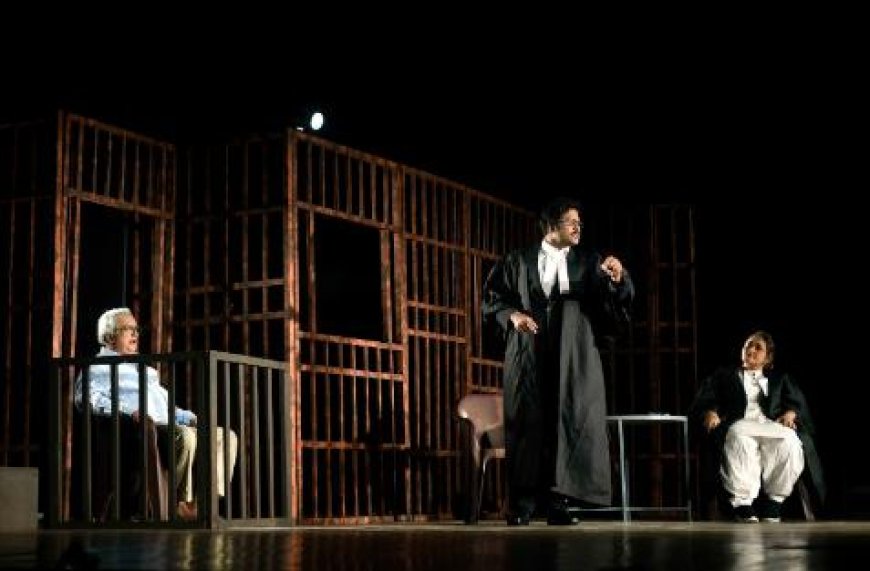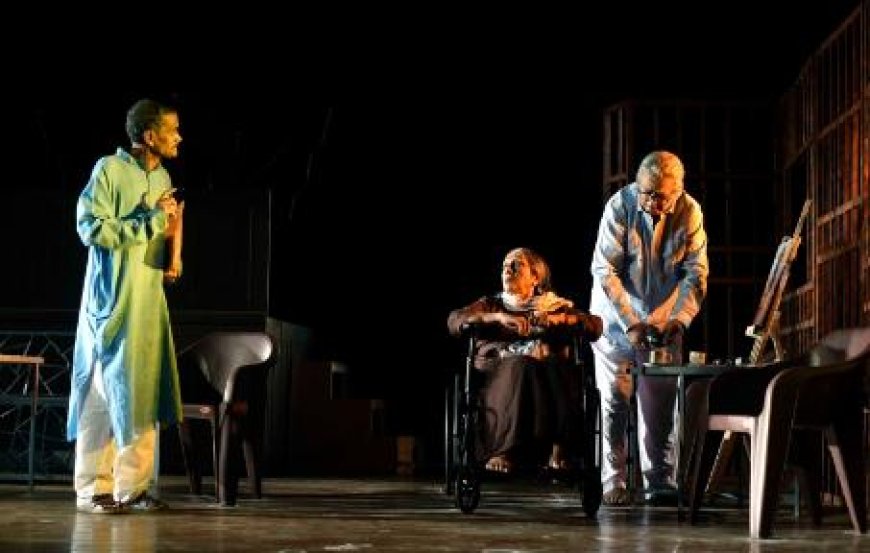DHARMAVATAAR (YOUR HONOUR) : JUSTICE VERSUS BLOOD TIES
Shoma A. Chatterji provides a review of a recent Bengali play called DHARMAVATAAR staged by one of the oldest and prominent theatre groups in Kolkata.
The conflict between professional ethics and blood ties is eternal. Which should take priority when the choice is between these two and only one choice is to be taken? This is the basic question the play Dharmavataar (Bengali) raises. It is inspired from an American television play Your Honour adapted from an Israeli play. The adaptation has been effectively scripted by noted Bengali playwright Ujjal Chattopadhyay.
Dharmavataar was recently staged at the Academy of Fine Arts, Kolkata, presented by Sayak, a renowned Bengali theatre group of Kolkata that is celebrating its 51st anniversary this year. The play is directed by the noted theatre personality and founder of Sayak, Meghnad Bhattacharya. He essays the challenging role of the father, a judge who holds honesty in everything that span his life. Of his two sons, Hrithik, the elder son, is a very successful lawyer at the Supreme Court. His father, however, is angry with his conviction that Hrithik’s handsome earnings are sourced back to his defense of rich people accused of crimes and saving them from certain conviction through his clever arguments. So, he keeps no connection with Hritihik even at a personal level. The son however, tries to make peace with his estranged father but in vain.
The second son Goirik, lives with his parents but he is a special child as he suffers from some kind of epilepsy so, though he is a very loyal child, he is caught between his ailment and his duty to his parents. He is also disturbed about the fractured relationship between his father and his elder brother.
The stage is split in two levels horizontally and is switched effectively into a courtroom and Jyotish’s home where his wheelchair-bound wife Manorama dies, off-stage, at the end of the first scene. The lightning changes of the proscenium are brought about effectively. The intelligent play of darkness and light is created and treated both physically and metaphorically as the lives of the main players are forever vacillating between the dark corridors of dishonesty and the brightness of honesty and truth.
The real drama begins when Jyotish is accused of deliberately killing a former criminal who was acquitted of the rape and murder when Jyotish was judging the case many years ago. Jyotish fainted on the steering wheel of his car. Why did he not take his driver along knowing full well that his eyesight was not strong enough to drive alone. The play then focusses on the trial with a new judge, Hrithik stepping in to defend his father and Jyotish in the box of the accused.
What happens in the end had better remain a secret for future viewers of the play. But suffice to say that the play raises many ethical questions about whether the position of a father ranks higher than the position of a judge specially when both positions are vested in the same person. The spirit of his dead wife accuses him of sticking to being a judge right through his life sacrificing his fatherhood along the way which leaves the older son with a broken heart. He is a successful lawyer, true. But he is stripped of the love his father could have given him.
If Hrithik is a defense attorney, that is his choice. It does not demand as much honesty as the judge’s work does. He allows his wife to defend his father as the older man refuses his son’s defense. The burden of honesty lies with his father but to stick to his honest ideals, Jyotish must give up being a father.
Interestingly, the daughter-in-law, who also is a lawyer in the Supremee Court, is in the process of divorcing her husband as she does not agree with his choice of defending corrupt and criminal people solely on grounds of earning a lot of money. That the divorce will not happen finally is suggested when his wife asks to allow her to defend her father-in-law. But Jyotish keeps the advocates on either side and the judge by stating that he might or might not have run over the criminal while driving his car.
The lighting and the background score fit the presentation like a well-tailored glove. The role of Jyotish’s grand-daughter is superfluous. The play could well have done without her as she hardly does anything within the performance. It is a linear and sketchy character that does not add to the proceedings.
The actors playing the main parts have done extremely well. But the play begins to drag beyond a point needlessly when it could have ended at least a good 30 minutes before it really came to an end. The twist in the end of the play with Jyotish dying of a rare kind of cancer right in the box and pleading that he does not quite recall whether he actually killed the man or he did not, turns the climax into an exaggerated melodrama. Jyotish’s death becomes a very convenient climax which throws up an open end without answering the questions raised by the basic philosophy that underlines the play set out in the beginning.
This is a very good performance but it does need some trimming and a less compromising climax that turns Jyotish into a martyr which he is most certainly not.
*****
What's Your Reaction?


































































